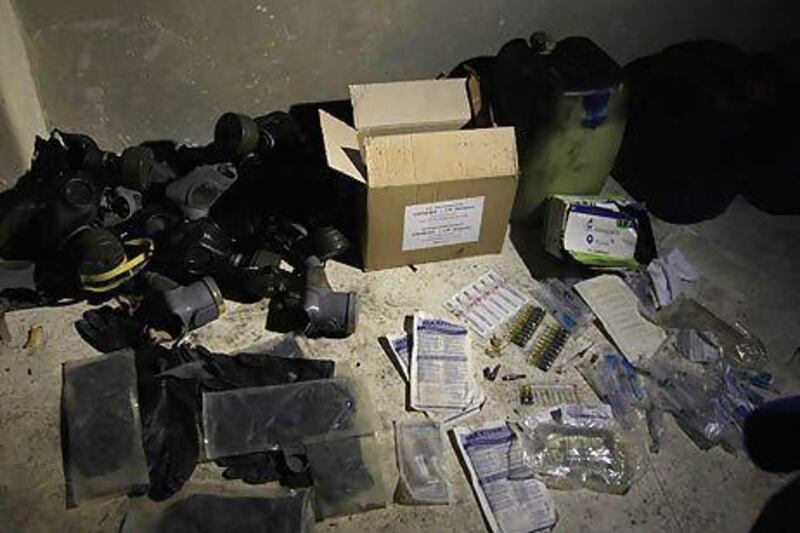ABU DHABI // Military chiefs from Saudi Arabia, Qatar, Turkey and the United States met in Jordan yesterday to discuss the crisis in Syria, days after a chemical weapons attack outside Damascus killed hundreds.
The officials are expected to talk about "regional security and implications of the ongoing crisis in Syria", Jordan's state news agency said. The three-day meeting has gained new urgency since last week's gas attack.
"The chemical attack and the increasingly definitive conclusions being reached in western power circles with regards to who was responsible, strongly suggests a decision has been reached that some kind of action is now necessary," said Charles Lister, an analyst at IHS Jane's Terrorism and Insurgency Centre in London. He said that "the diplomatic intensity has certainly escalated".
Gen Martin Dempsey, the chairman of the US Joint Chiefs of Staff, was expected to attend along with the army chiefs of staff of Saudi Arabia, Qatar and Turkey, said Kuwait's state news agency. Officials from Britain, France, Germany, Italy and Canada were also invited.
A European defence official said on Saturday that the chemical attack had refocused discussions in Amman.
"We had been expecting to talk mainly about stabilising Jordan," he said. "Instead, it will be dominated by Syria. It's all really waiting on the Americans and what they decide they want to do.
"There have been discussions, but so far they have been very inconclusive. As the scale of what happened in Damascus becomes clear, that may change."
Over the weekend, the US president, Barack Obama, called the attack "a big event of grave concern".
He said that, if confirmed, the use of chemical weapons would be "something that is going to require America's attention".
Washington has already stationed F-16 fighter jets and Patriot missiles in Jordan, which has received about a quarter of the two million Syrian refugees who have fled abroad.
The US is also considering providing Jordan with manned US surveillance aircraft to help it monitor its border with Syria.
Chuck Hagel, the US defence secretary, who was in Kuala Lumpur yesterday as part of a trip to South East Asia, said Mr Obama was weighing several options.
"There are risks and consequences for any option that would be used or not used - for action or inaction," said Mr Hagel. "You have to come to the central point of what would be the objective if you are to pursue an action or not pursue an action. So all those assessments are being made."
Washington has remained reluctant to directly intervene in the crisis in Syria, warning that military action could draw the US into a prolonged conflict that would be deeply unpopular with Americans.
But Mr Lister said that the anticipation of a possible US-led intervention in Syria had already begun to shift dynamics among the Syrian opposition on the ground, as more radical groups worried that they could be targeted.
"The perception seems to be that if the US decides to take limited military action, in the form of cruise missile strikes for example, that targets will include both Syrian military and jihadist sites," said Mr Lister.
Meanwhile yesterday, the Syrian government's strongest regional ally, Iran, warned the US against military force.
The semi-official Fars news agency, which has close ties to Iran's powerful Revolutionary Guard, quoted General Masoud Jazayeri as warning that "trespassing over the red line in Syria will have severe consequences for the White House".
The meeting was planned two months ago and is the third gathering of the countries' military chiefs to discuss Syria this year.
* With additional reporting from Reuters and the Associated Press





